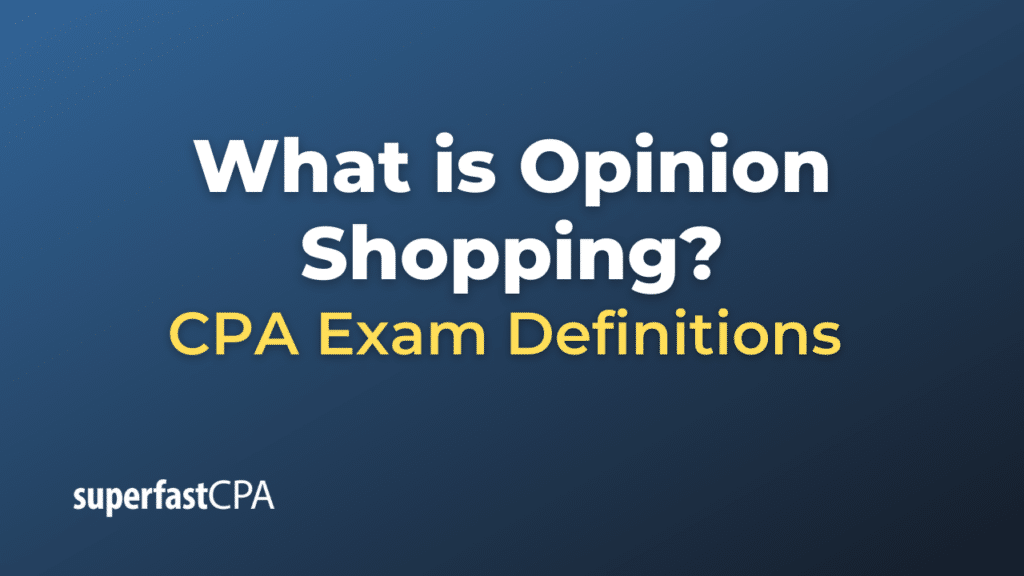Opinion Shopping
Opinion shopping is a practice where a client seeks the advice of different auditors or consultants in order to get a favorable opinion on their financial statements, business practices, or other aspects of their operations. This practice is generally viewed negatively, as it may suggest the client is trying to conceal or misrepresent certain aspects of its operations to present a better picture of its financial health than is actually the case.
In the context of financial audits, for example, a company might engage in opinion shopping if it has received a negative or qualified opinion from one auditor and then seeks out another auditor in the hope of obtaining an unqualified or “clean” opinion.
While it is not illegal for a company to seek out different auditors or consultants, systematic opinion shopping can undermine the independence and integrity of the auditing process. It is also typically a red flag for regulators and investors, as it may suggest the company has something to hide.
To mitigate the risk of opinion shopping, standards and regulations have been developed in many jurisdictions that require the auditors to communicate with each other when a client is changing auditors, or require the new auditor to review the previous auditor’s work before issuing their own opinion. These were some of the measures in place to mitigate this risk.
Example of Opinion Shopping
Suppose Company X is a publicly traded company. At the end of its fiscal year, it hires an audit firm to audit its financial statements. The auditors, after conducting their audit, decide to issue a qualified opinion due to some issues with Company X’s revenue recognition practices. A qualified opinion indicates that most of the financial statements are fairly presented, but there are certain areas where the company is not in conformity with the generally accepted accounting principles (GAAP).
Unhappy with the qualified opinion, Company X decides to dismiss the audit firm and hires a different auditor, hoping to get an unqualified (or “clean”) opinion. They do not disclose the concerns raised by the first audit firm to the second auditor.
Company X is essentially “shopping” for a more favorable opinion. This is an example of opinion shopping, which is generally seen as a dubious practice as it can undermine the reliability of financial statements and auditors’ opinions.
It’s important to note that, in practice, there are regulations and professional standards in place to discourage opinion shopping. For example, when a company changes auditors, the new auditor is generally required to communicate with the previous auditor, and the company is required to disclose in its public filings that it has changed auditors and why. In some cases, the new auditor may also need to review the previous auditor’s work. These measures are designed to preserve the integrity and independence of the audit process.













